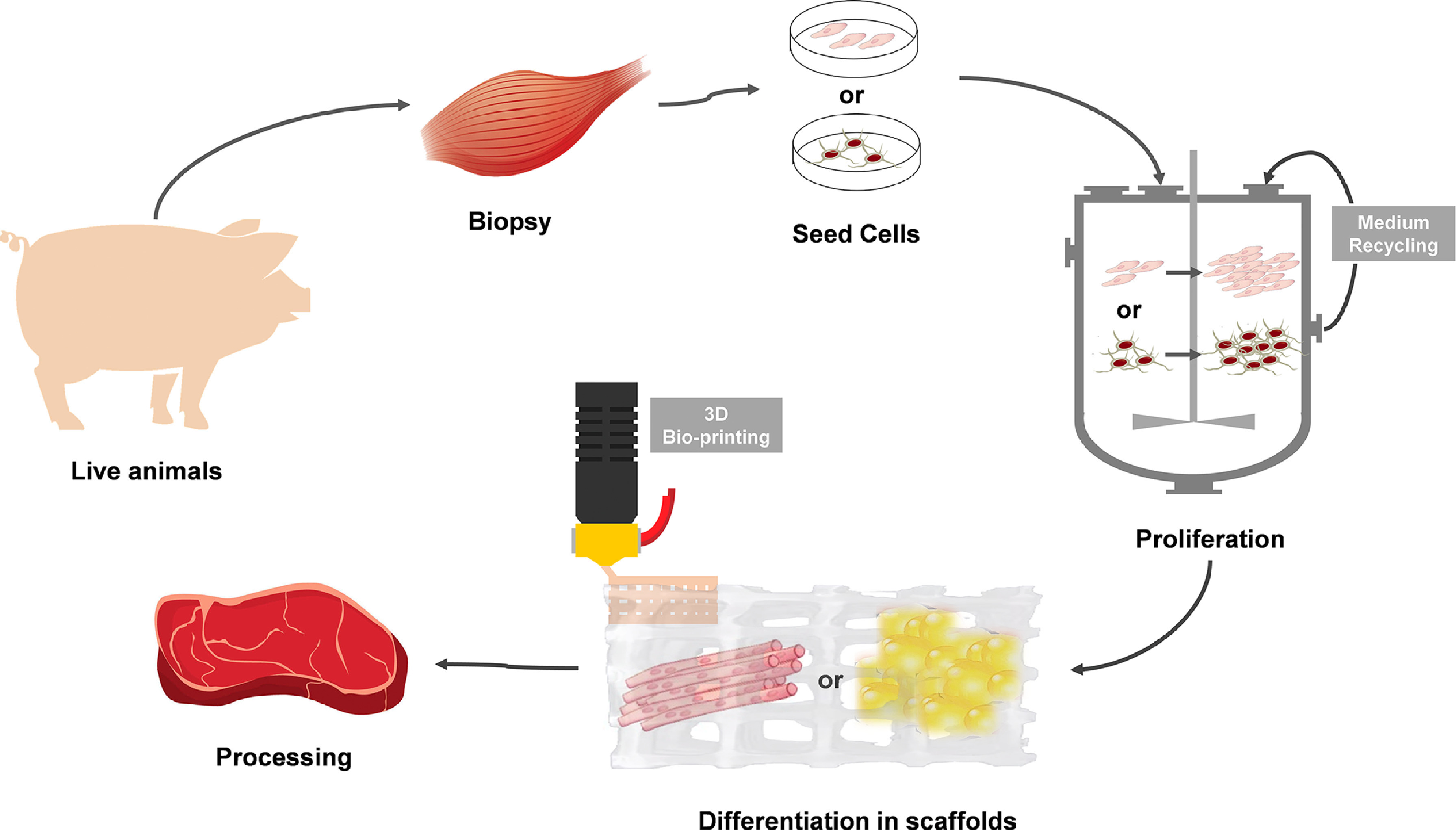Background: Simulation-based experiences provide learning opportunities into the world of people living with dementia, however limited research into its effectiveness exists. Methods: A quasi-experimental design was used to examine the impact of the virtual dementia tour on empathetic thinking, understanding and person care. Study participants included carers and multi-health professionals (n = 223). Results: Empathetic understanding of symptoms, its impact on the provision of person-centred practice were all scored as neutral.
As future foods, cultured meat is produced by culturing animal cells ex vivo rather than raising and slaughtering animals. It is a promising way to address concerns about resource consumption, environmental pollution, public healthy that associated with conventional livestock production. In the past two years, dozens of cultured meat-related start-ups have been founded and millions of dollars have been raised, demonstrating the high business enthusiasm, broad market prospects and high profitability expected.
Purpose: To investigate the monthly and seasonal variation in adult osteoporotic fragility fractures and the association with weather. Methods: 12-year observational study of a UK Fracture Liaison Service (outpatient secondary care setting). Database analyses of the records of adult outpatients aged 50 years and older with fragility fractures. Weather data were obtained from the UK's national Meteorological Office.
The Warsaw International Mechanism for Loss and Damage has identified increasing temperatures as a key slow onset event. However, it is the resulting increases in short-term heat events — heatwaves — that have so far been the primary focus of risk assessment and policy, while gradual and sustained increases in temperature have received less attention. This is a global issue but particularly important in tropical and subtropical regions already chronically exposed to extreme heat.
Responding to climate change requires radical transformations in social, political, economic and social-ecological systems. Recent research has argued that individuals can drive transformations at scale through changes in beliefs and values that affect political activity. We draw from sociological and psychological perspectives on mental health outcomes among survivors of violence and abuse, taking a gendered approach, to show how potential for individual transformation is differentially constructed through personal life trajectories and intersectional social relations.
The climate policy discourse on Loss and Damage has been considering options for averting, minimizing and addressing critical and increasingly systemic climate-related risks in vulnerable countries. Research has started to identify possible finance sources and mechanisms, but stopped short of positioning those options along a comprehensive risk management framework in line with the whole scope of Loss&Damage.
A growing scientific evidence reaffirms that slow onset climate events such as desertification, sea level rise and loss of biodiversity will place an increasing number of people at risk of poverty and social marginalization. Establishing national social protection systems aligned with the 2030 Agenda for Sustainable Development and the Paris Agreement could be a key policy approach to address increasing risks from long-term changes to the climate system.
Based on a systematic review of journal articles, books and book chapters, and policy papers, we evaluate possible sources of finance for addressing loss and damage from slow onset climate events in developing countries. We find that most publications explore insurance schemes which are not appropriate for most slow onset events. From this, we determine that only a few sources are sustainable. Levies and taxes are seen as relatively fair, predictable, adequate, transparent, and additional.
Effective management of slow-onset impacts such as coastal erosion, desertification and sea level rise and their often-transformative impacts on communities and countries has remained relatively unexplored in terms of policy and finance responses. Drawing on relevant global experience, this paper investigates recent approaches to planned relocation as one possible response to climate change impacts and considers principles to inform the design of a fair and effective funding system.
Slow-onset events (SOE) such as sea level rise, desertification, salinisation, ocean acidification, loss of biodiversity and forests or glacial retreat fall under loss and damage (L&D) from climate change impacts under the United Nations Framework Convention on Climate Change and are increasingly threatening the environment and people's livelihoods. Irreversible SOE are closely linked to non-economic losses (NEL) such as health, human mobility or loss of ecosystem services. Neither L&D from SOE nor NELs have a dedicated funding stream.

